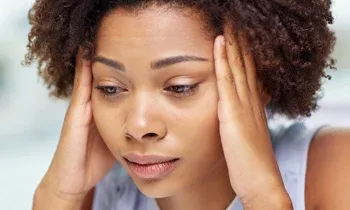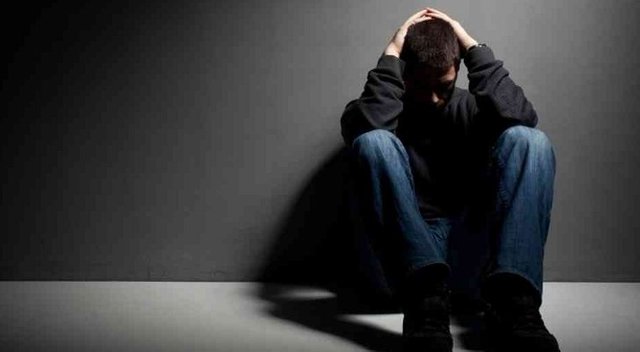
Let’s begin by bring to mind what stress is?
Stress is our body’s way of responding to any kind of pressure. It is also your body’s way of protecting us. But stress itself is capable of causing depression just by affecting your daily plans/schedule and the way you interact with the environment and people around you.
Stress symptoms
These includes: Anxious or racing thoughts, constant worrying, memory problem, feeling overwhelmed, depression or general unhappiness, and so on.
What is Depression?

Depression is a mood disorder that causes a persistent feeling of sadness and loss of interest. It is also called major depressive disorder or clinical depression. Depression affects how one feels, thinks and behaves, not being able to carrying out normal day-to-day activities, of which can lead to a variety of emotional and physical problems.
Sadness, feeling down, having a loss of interest or pleasure in daily activities- these are symptoms familiar to all of us. But, if they persist and affect our life substantially, it may be depression.
Symptoms of Depression
Feeling of sadness, emptiness or hopelessness
Angry outbursts, irritability or frustration, even over small matters
Loss of interest or pleasure in most or all normal activities, such as sex, hobbies or sports
Sleep disturbances, including insomnia or sleeping too much
Tiredness and lack of energy, so even small tasks take extra effort
Reduced appetite and weight loss or increased cravings for food and weight gain
Anxiety, agitation or restlessness
Slowed thinking, speaking or body movements
Feelings of worthlessness or guilt, fixating on past failures or self-blame
Trouble thinking, concentrating, making decision and remembering things
Frequent or recurrent thoughts of death, suicidal thoughts, suicide attempts or suicide
Unexplained physical problems, such as back pain or headaches
Causes
The causes of depression are not fully understood
Likely to be a complex combination of genetic, biological, environmental, and psychosocial factors.
Risk Factors

Some people are at higher risk of depression than others
Life events: bereavement, divorce, work issues, relationships with friends and family, financial problems, medical concerns, or acute stress.
Personality: Those with less successful coping strategies or previous life trauma are more susceptible.
Genetic factors: Having first- degree relatives with depression increases the risk
Childhood trauma.
Drugs: Corticosteroids, some beta-blocker interferon, and other perception drugs.
Abuse of recreational drugs: Abuse of alcohol, amphetamines, and other drugs are strongly linked to depression.
A past head injury.
Having had one episode of major depression: This increases the risk of a subsequent one.
Chronic conditions such as Chronic pain syndromes, diabetes, chronic obstructive pulmonary disease, and cardiovascular disease.
Complications
Depression is a serious disorder that can take a terrible tool on the patient and the family.
Depression often gets worse if not treated, resulting in emotional, behavioral and health problems that affect every area of life.
Excess weight or obesity, which can lead to heart disease and diabetes
Pain or physical illness
Alcohol or drug misuse
Anxiety, panic disorder or social phobia
Family conflicts, relationship difficulties, and work or school problems
Social isolation
Suicidal feelings, suicide attempts or suicide
Self-mutilation, such as cutting
Premature death from medical conditions,
Prevention
There’s no sure way to prevent depression. However, these strategies may help.
Control Stress: Increase resilience and boost self-esteem.
Reach out to family and friends especially in times of crisis.
Get treatment at the earliest sign of a problem to help prevent depression from worsening.
Consider getting long-term maintenance treatment to help prevent a relapse of symptoms.
Treatment
There are three components to the management of depression.
Support, ranging from discussing practical solutions and contributing stresses, to educating family members.
Psychotherapy, also known as talking therapies, such as cognitive behavioral therapy (CBT).
Drug treatment, specifically antidepressants.
How to Manage Stress
For one dealing with stress, the best way to manage stress that could eventually develop into depression are:
Create Peace: create a room in your daily activities to take care of your emotional, physical and your spiritual well-being.
Eliminate Stress there is always various way of making yourself less stressed.
Ask for Help: Stress is made even worse when you force yourself to handle it all by yourself instead of seeking help from friends or professionals.
Get more sleep
Get involved in physical Activities
Congratulations! This post has been upvoted from the communal account, @minnowsupport, by Jayboss from the Minnow Support Project. It's a witness project run by aggroed, ausbitbank, teamsteem, theprophet0, someguy123, neoxian, followbtcnews, and netuoso. The goal is to help Steemit grow by supporting Minnows. Please find us at the Peace, Abundance, and Liberty Network (PALnet) Discord Channel. It's a completely public and open space to all members of the Steemit community who voluntarily choose to be there.
If you would like to delegate to the Minnow Support Project you can do so by clicking on the following links: 50SP, 100SP, 250SP, 500SP, 1000SP, 5000SP.
Be sure to leave at least 50SP undelegated on your account.
Downvoting a post can decrease pending rewards and make it less visible. Common reasons:
Submit